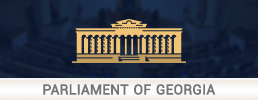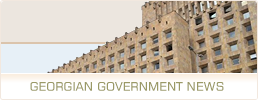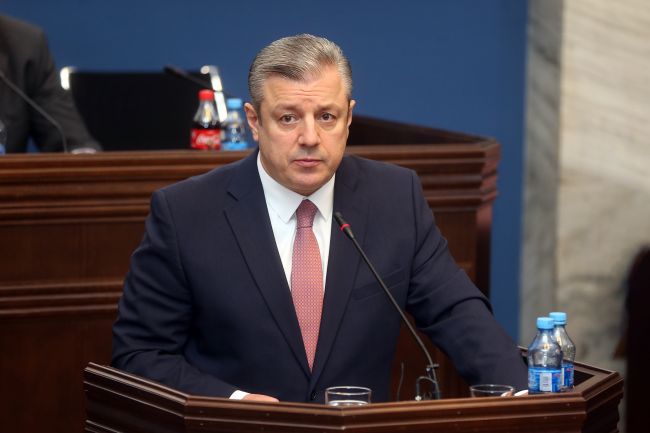2017-12-20
It is very important to me to introduce you to our future plans and discuss with you the activities we have already carried out. Equally importantly is to hear your questions and recommendations. I am here in the spirit of constructive discussions revolving around your concerns and some of your recommendations that will be taken into account, provided that it all is constructive, and I certainly hope it will be so.
Recently, structural changes were proposed and approved by the Parliament, according to which the number of ministries was reduced from eighteen to fourteen. Accordingly, a new composition of the Cabinet has been proposed, along with new plans and accomplished work.
I would like to state from the outset that the Cabinet's structural modification is designed to make it better optimized, more flexible, and to eliminate duplication of work among various ministries, to do more with less bureaucracy. I am convinced that, after the new Cabinet is approved, we will continue our work based on this very principle.
OF course, the optimization also seeks to cut administrative expenses, and it is one of the key directions and arguments, though not the only one. The main argument involves the formation of a more flexible and effective government. The country's European and Euro-Atlantic integration, the institutional protection of human rights, and strengthening the rule of law in the country remain the main value of our Cabinet and Government, and very important institutional reforms are in full swing to this end.
This very direction has long ceased to be the exclusive priority of our country's foreign policy. Instead, it has emerged as the force defining the agenda of our domestic reforms in its entirety.
I will start with the state of affairs in the implementation of the Government's four-point agenda. It is important for our citizens to know, and for the opposition alike, to be aware of the results we have today.
As you know, we have declared overhauling education as our main priority, and we have taken a number of important steps. In the past two years, important steps have been taken to correct the healthy mismatch between higher education and vocational education. The number of vocational education students is up 20%, and this year we are launching a much more refined system of authorization and accreditation to enhance the qualitative level of education in our country. Of course, we will continue introducing various vocational education modules, which will proved useful for our youths, and not only youths, in their search for direct employment, as it will also enable them to master necessary skills.
Equally important changes are planned to be implemented in the system of secondary education, and in terms of introducing new technology.
I am sure that the candidate to the Office of Minister of Education has already spoken about this issue, and I will not go into detail.
In terms of economic reforms, we have implemented a very important reform in early 2017, the profit tax reform, creating this way at least 500 million GEL worth of investable resources in our economy. It is equally important that we balanced the budget with indirect taxes, such as excise taxes on tobacco, fuel, and gambling business. At the same time, however, the loss brought about by the profit tax reform we balanced through cutting the Government's administrative expenses and remuneration expenditure, which has amounted to 140 million GEL in 2017 alone. It is an important optimization and reform that has brought about fresh dynamics into economic growth. As you know, the current GDP growth is at 4.9%. It is a real growth, I emphasize, and it takes into account the inflation.
Of course, the approved 2018 budget is a budget of economic growth, and I am convinced that it will be possible to increase the economic dynamics.
Importantly, we created mechanisms for start-up businesses, with as many as 70 businesses supported through this new system. We invited representatives of leading companies from the Silicon Valley, California and formed a council who delivered trainings for the local council, and the first wave of financing was carried out with their engagement. Consequently, a system was put in place, which is already working in this direction.
Importantly, innovative young people were given an opportunity to receive financing for their high-tech start-up ideas, which was the ultimate goal of this initiative. As you know, the Tech Park in Tbilisi and Zugdidi is favored by younger generations and beyond.
Equally important is the Business House project, a very important direction in our government reform. The Business House project covers the service industry, its second phase, as it were. As you know, the system of public service halls is up and running, providing individuals with more than 400 services. We initiated the Business House project to provide with relevant services legal entities using the same principle of one roof. We inventories the pubic sector, and counted over 800 services provided by more than 60 state agencies to legal entities, which is a major challenge.
It is a complex reform because it involves not only representation offices under one roof but also so-called front offices, that is, the unification and streamlining of the service component under one roof, with more than 800 services offered in one physical space and through one electronic portal.
It is a fundamental governance reform which, I am sure, will bring about very positive results in terms of both simplifying the process of making business and mitigating chances of corruption in the future, and also in terms of enhancing transparency and effectiveness.
Allow me to say a few words about the pension reform and the development of the capital market, two closely interrelated reforms. The pension reform is a crucial institutional reform to enable persons employed in Georgia to ensure quite retirement, and in this they will be co-financed by both the state and the employer.
As you know, the draft project has already been proposed and is widely discussed. On one hand, this reform will, in ten, fifteen or more years, enable future retirees to ensure a decent standard for their retirement. At the same time, the reform is important in terms of its spill over, that is, side effects, which will bring in hundreds of millions in local currency every year for long-term investment, so that these resources may be invested in economy.
You know how problematic long-term investment in local currency is. We believe that it will be a fundamental reform that will result in important qualitative change, also bringing about institutional development in such financial directions that are extinct in Georgia: the development of the custodial deposit institution and the equally important development of and incentives for the stock exchange. To ensure reform in this direction, diagnostics for the current system have already been carried out, and a roadmap has been developed. This work was carried out with the participation of the Asian Development Bank. Also, the project incorporates active engagement from the World Bank, USAID, the European Bank, and other donors. The reform was commended by the Mission of the Monetary Fund, and it is very motivating when international partners unconditionally uphold our actions.
In terms of making use of the free trade area, we have very positive trends. Our trade with the EU is growing. The EU is our primary trade partner, with the export into the EU member states up 20%. the share of the CIS countries in our overall trade is decreasing, which means the diversification of our foreign trade and greater resilience in the face of external shocks.
It is important that institutional reforms are being successfully implemented in this direction. These are standardization, metrology, sanitary, and phytosanitary institutional reforms, competitiveness reform, the customs reform, and many others, which are linked to the DCFTA and the implementation of the institutional changes in Georgia defined therein.
It is important to discuss spatial planning and making full use of the country's transit potential. Very important steps have been taken in this direction, because the financial resources made available through the optimization, or other means, have been channeled toward capital expenses. Importantly, administrative expenses have not increased. On the contrary, the Government's remuneration and administrative expenses in 2017 decreased by 140 million, and capital expenses increased tremendously. In the Ministry of Infrastructure and Regional Development alone, we have a 36& increase. Next year, an equally significant growth is expected in this direction, with expenses amounting to more than 800 million GEL, which will mark an unprecedented case in the history of independent Georgia.
Al this bears witness to turning our country into a transit and logistics hub being our key priority. The successful implementation of the Anaklia Deep Sea Port deserves special mention. According to the latest information, we already have partnership between American and Georgian companies under this project. These are the largest TBC Group representation, the prominent US Conti Group engineering company, and SSA Marine, a Seattle-based port management company with 240 locations under its management worldwide, and this company has entered not only as a port operator but also as an investor. Another piece of latest information reveals that a Chinese company agreed to invest in the project, which means that this initiative will bring together Western and Eastern investments. It is very important because this is the very model for turning Georgia into a transit and logistics hub. This project also involve an important investor from Uzbekistan, which exemplifies Middle Asian engagement in the project. I reiterate that this is an important strategic project that will bring about significant dynamics in our country's economic growth in the coming decades, and it is no an exaggeration.
Declaration of interests has been announced for two large logistics projects: logistics entries in Tbilisi and Kutaisi, this way completing the country's logistics chain. Equally importantly, the Baku-Tbilisi-Kars railroad is almost completed, to be finalized and completed sometime in 2018. It is a very important project in terms of developing the country's railroad and transit potential. Also important is the project for modernizing the existing railroad system, with an eight-kilometer tunnel already completed along the Kvishkheti-Kharagauli route. It is the longest tunnel in Georgia and the region built with participation from Chinese companies. Of course, it is equally important to complete the highway as soon as possible, and planning and tender competitions have been announced for tens of projects in this direction, and relevant work is underway.
It is also important in terms of spatial planning that very important infrastructural investments are made into tourism by the Government of Georgia, with the engagement of private companies, also the construction of tourist routes, and the development of this direction in line with development masterplans.
Decreasing energy import and strengthening the country's energy independence is one of our key strategic directions, and very important HPPs have already ben constructed, while others are under construction. As you know, the Neskra project, the largest new hydropower project in the history of independent Georgia, is implemented in cooperation with a Korean company and engagement from international financial institutions. It is also important to ensure that new construction projects are launched on time so that local generation may gradually replace imported energy.
Equally important are investments in renewable green energy. As you know, the first wind farm has already been constructed, and the Government is paying special attention to solar and wind energy.
As an important platform, the Open Government Partnership allows for Georgia's greater international visibility. As you know, under the UNGA session, we took over the partnership's chairmanship from the President of France. It is a great honor and yet an equally great responsibility to continue important reforms in transparency and effective and inclusive governance.
Importantly, we plan to create an online petitions portal, with http://ichange.gov.ge/ already in place. If the number of signatories reaches 10,000, the Government will be obligated to review the petition and provide the signatories with its substantiated positive or negative answer. the Government plans to create a number of similar platforms to put in place opportunities for dialogue and engagement and to ensure through civilized methods our population's greater engagement in governance.
In terms of self-government and decentralization, we will propose a very important strategic plan in the foreseeable future. We are working closely with the Parliament to ensure greater delegation to local self-government bodies, to allocate more finances to manage among others. Our goal is to have qualified people working in the regions. Importantly, the centers of decision-making will move to local self-governments to work on issues in which their competences will be gradually built. This is our strategic course, one of the most important ones, and I would like to emphasize that.
As you know, our Government has launched a special direction to transform schools into cultural, education, and sports centers. This will allow for the creation of different platforms for dialogue in the regions, so that our population may be engaged in governance.
In terms of agriculture, agrarian policy, and cooperation, we have significant achievements and challenges alike. We are faced by serious challenges when it comes to cooperation. In terms of agrarian credit and agrarian programs, we succeeded in qualitatively changing the situation. These are giant steps forward in terms of reorienting our agricultural production in the European market, and we have some tangible results in this regard. Orchards meeting modern standards and covering up to 3,500 hectares of land have been arranged with the Government's and various international programs' assistance, including ENPARD, USAID, G4G, GIZ, and many others. Today, ingenious citizens have unprecedented opportunities to start business in the regions.
It is also important to discuss challenges, including stink bugs, and no one knows what impact these pests will have in 2018, but we are diligently preparing for everything. In 2017, the ministry everything in its power, but I reiterate that this is a challenge of unprecedented dimensions. We will see what spring brings. In any case, we must be prepared.
Equally important is our plan for environmental protection and forest inventory. Merging the Ministries of Agriculture and Environment Protection was an important step in many ways. It will be a large ministry with environment as one of its key priorities. It will be a ministry in charge of bringing our country's agricultural production under the green concept and gradually introducing more European organic standards. Of course, challenges are many, one of the most important of which is illegal deforestation. Through engagement with our newly established ministry and law enforcements, we declare war on illegal deforestation in Georgia, and these are not just words, as you will see its results. Resources have been allocated for forest inventory, with assistance from the Government of Germany to finance relevant work. It is important to ensure the right systemic management and coordination. This direction will bring about important qualitative changes, but I admit there are serious challenges. Since illegal deforestation is linked to social conditions, alternatives must be sought fast to replace illegal deforestation and production with other means of income.
In terms of providing refugees with residences, important steps have been taken, with almost every Government meeting allocating living spaces to 500, 600, 700 families, in some cases legalizing their properties and handing new ones in others. We have allocated unprecedented resources to this end, with the ministry's budget growing significantly in the past few years, but that is not enough, greater efforts must be exerted and dialogue must be maintained with the opposition and refugees to find ways for stepping up the allocation of residences to refugees.
In terms of corrections, we have significant qualitative changes. This area has seen much progress, as confirmed by all of our international partners. Today, this ministry offers various innovations. Importantly, along with humane approaches, we must of course uphold strict order. We plan to carry our impactful changes to build more facilities of this new type, which will significantly contribute to the eradication of mob mentality. In terms of introducing more humane methods, facilities are being established to foster resocialization, to prepare inmates for living free. There are numerous other measure which we will not mention at this point.
Preventing juvenile violence is one of the major challenges. I have spoken about it publicly, and I reiterate that this issue does not concern only one agency. It is a task facing the Government, the authorities, the Parliament, the opposition, the education system, and the Church, who must act together. However, we will face our responsibility, because it is the Government's responsibility, which is why accept this challenge by planning complex measures hopefully to make a difference. The new minister mentioned his interesting plans, and he enjoys support from the Cabinet and the Government team in taking these steps. The Ministry of Education and Science is also actively involved. We took certain steps, and there are new challenges, which we will counter with adequate answers, of course.
In terms of promoting sports and healthy lifestyle, we have a very interesting plan. The Ministers of Culture and Sports held a joint briefing to announce a new plan for athletic competitions between schools. It is imperative that our adolescents should be engaged in such initiatives to socialize instead of meeting one another in the streets during some uncalled for incidents. Importantly, the authorizes and society must engage in adopting healthy and athletic lifestyle, which is our society's number one task.
In terms of culture and monument protection, important new initiatives have been planned. We have significant priorities. It is very important that we will be Guest of Honor at the Frankfurt Book Fair, which will enable us to position our country from a very positive angle. Equally important is to build necessary infrastructure, to restore and protect our monuments of cultural heritage.
Culture will become one of the cornerstones in our country's international positioning, and resources have been allocated to this end and also for tourism administration, with main emphasis on showcasing our country's cultural riches as our country's strategic direction.
As you know, we have significant foreign policy achievements, with visa liberalization chief of them-a success of our country's joint effort. Besides being crucial in terms of free movement, this achievement is important in terms of declared political trust in our country and in our trajectory. Given our European and Euro-Atlantic course, we continue our efforts to ensure our country's deeper integration into European and Euro-Atlantic institutions. Neighborhood policy is also very important. Our country maintains relations with representatives of many regions around the world, with important countries and partners, and it does not concern only the Ministry of Foreign Affairs; it concerns our country's strategic line of action. In terms of European and Euro-Atlantic affairs, we have implemented a structural change in Government, and the Minister of Foreign Affairs, in his capacity of Vice Prime Minister, will oversee reforms to be implemented in this direction. However, as Chairman of Government, I remain Coordinator and Chairman of the Interagency Council.
Of curse, occupation and Russia's destructive policy in the occupied regions remains one of our most acute challenges. Gross violations of our citizens' rights are some of our Government's major challenges, and we are stepping up our efforts in international formats. We will continue this line of action. We have very interesting plans to use the existing formats more effectively, and we are discussing it with our strategic partners, and we will be able to discuss the details later, in a different format. An interesting dialogue is underway on the reintegration and reconciliation of the population in our occupied territories. I know that Ms. Ketevan Tsikhelashvili spoke in detail about steps to be taken in this direction. We have a package of bold decisions that will be submitted for review to the Parliament in the nearest future. These steps will enable us to ensure greater integration with our population in the occupied territories and to provide them with an opportunity to use every positive phenomenon in today's Georgia, to engage more actively in the agenda of our country's development. We intend to propose a very important and ambitious plan, a roadmap to the EU initiated by the Ministry of Foreign Affairs. I will not discuss the details of this plan, but the ambitions of this plan go far beyond our association agenda and involve far greater engagement and integration. It is an important statement, and together with our partners, we will succeed in implementing this plan to be ready when the window opens to Georgia.
In terms of defense and security, a fundamental reform was implemented in the Ministry of Defense, with its continuous emphasis placed on the country's defense and security. Next year, we are launching a very important program, and we will work in two key directions: the main package for NATO integration and the program for defense readiness implemented together with the US. As you know, in the pat few years, Georgia has significantly enhanced its interoperability with NATO's forces, and today we have a commendable situation in this regard. Giant steps are being planned to strengthen the country's resilience, and we have significant results in this area. We plan to develop a system for replenishing reserves and to align it fully to NATO standards, which is very important to us. Equally important is to engage our population in this process of building the country's defense capabilities, and the right reserve system ensures broad engagement in this regard.
2017 is a significant year for our country as we celebrate 100 years after our country took an important step by declaring the establishment of the first democratic republic. Unfortunately, that republic lasted only three years, but the zeal kindled by it in the hearts of our citizens persisted long enough to see the crowning achievement, the declaration of our country's independence in the early 1990s.
Today we have an opportunity to declare to the whole world that the Democratic Republic of Georgia is celebrating its centennial. Yet Georgian statehood and the building of the first democracy and democratic institutions go back hundreds of years and even millennia, which must be emphasized as well. We will have an opportunity to have universal celebrations and to make an important statement, and we must use this opportunity to introduce the whole world to the positive changes in our country.
This has been a brief summary of our performance, plans to be implemented in the future, and the challenges we are facing. I am ready to answer your questions and provide you with maximally detailed answers.
Thank you for your time.












